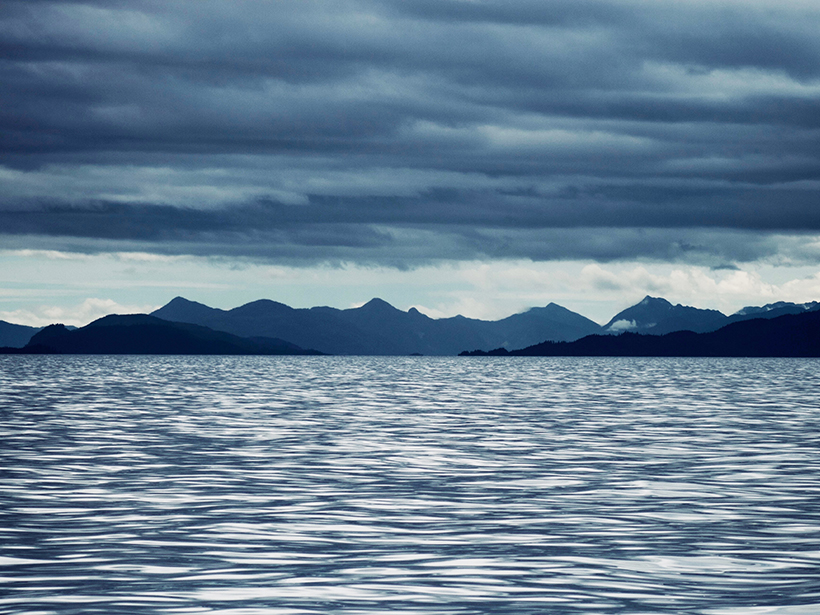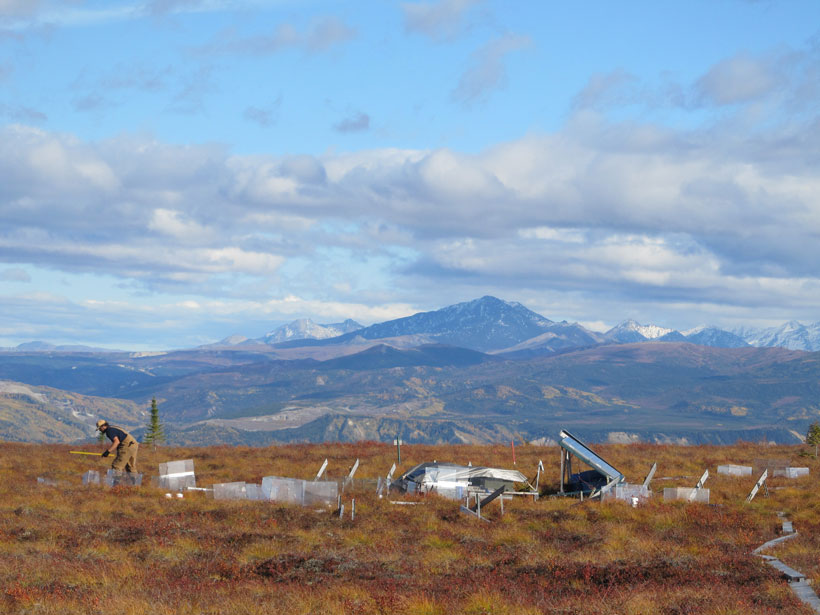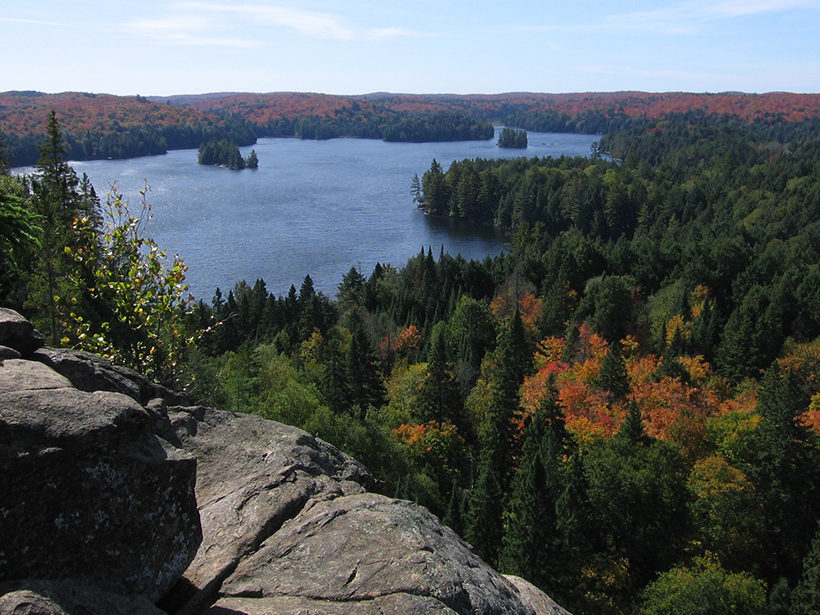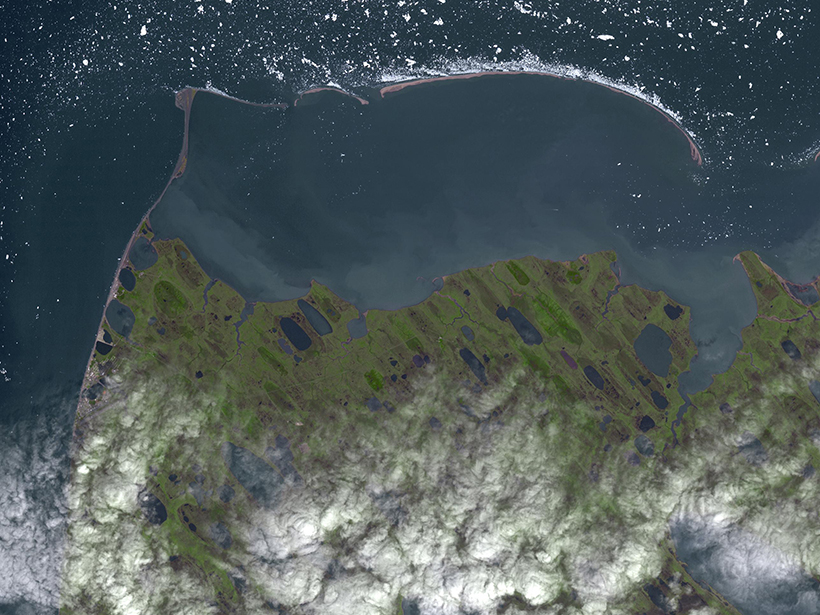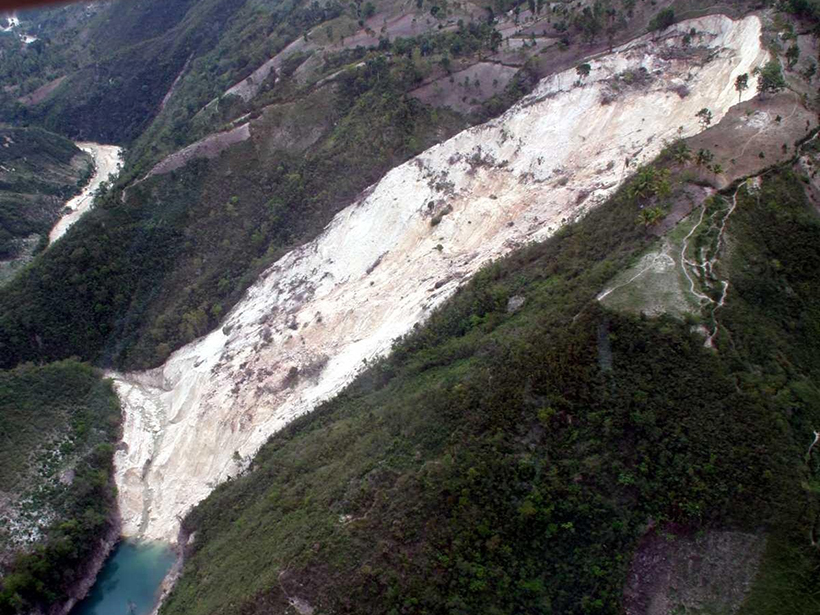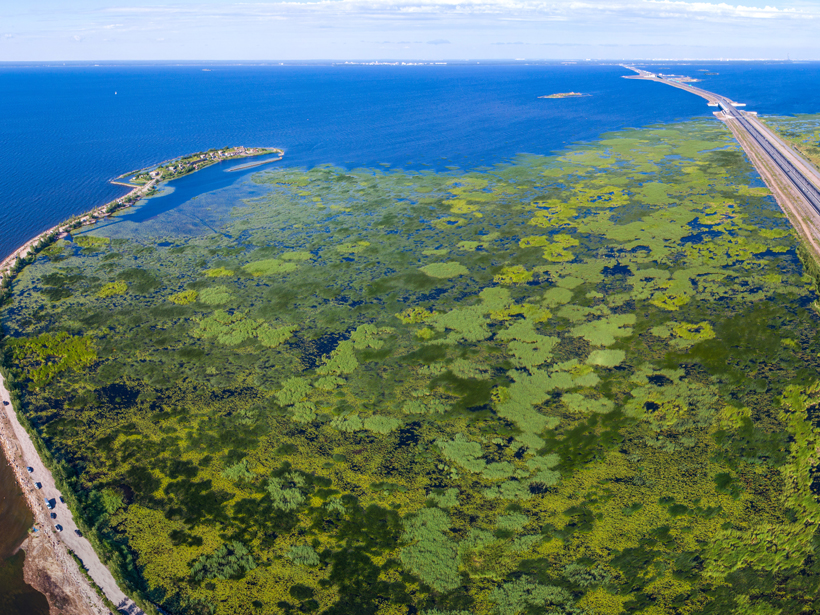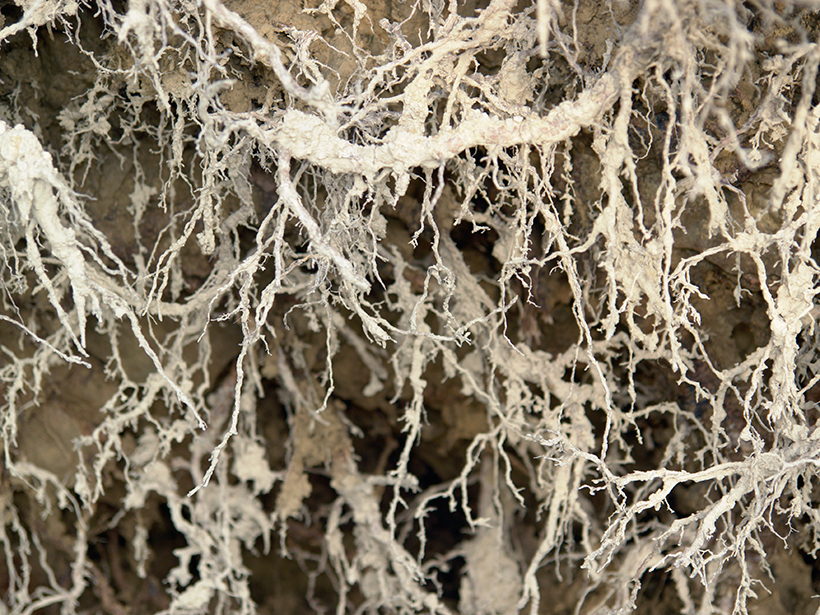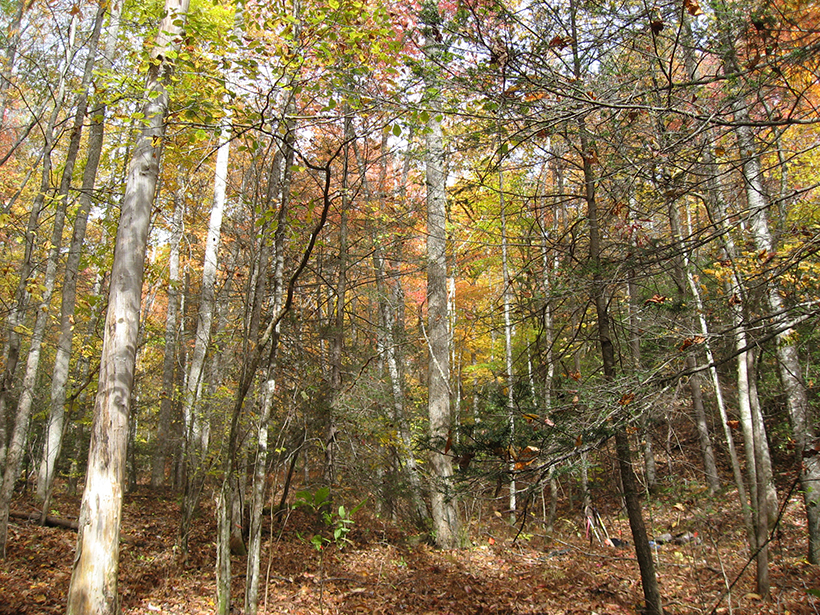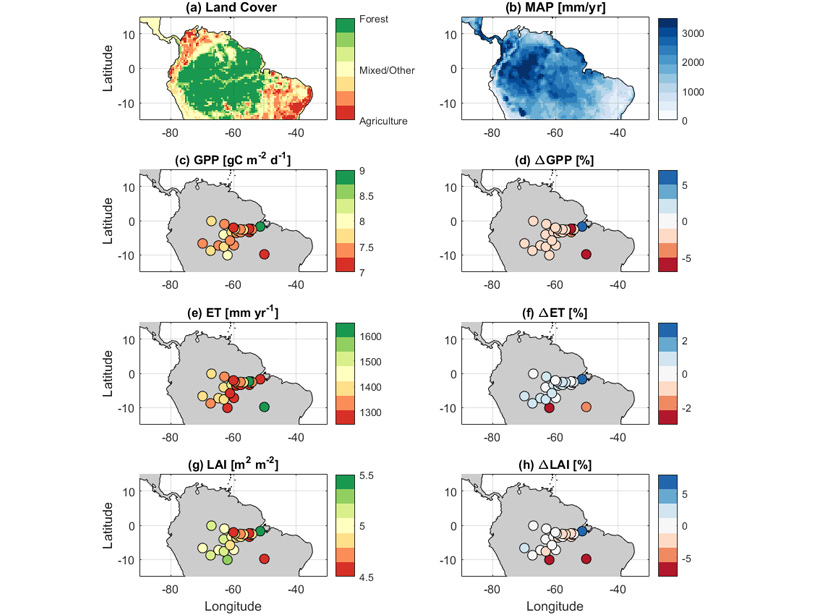Upwelling hinders an efficient method to estimate a key measure of biological productivity in coastal waters, but accounting for surface temperatures could boost accuracy.
carbon cycle
How Nitrogen Contributes to Permafrost Carbon Dynamics
Nitrogen released into the soil from thawing permafrost in the Arctic could accelerate soil carbon decomposition and alter carbon dynamics, with global implications.
Hydrology Dictates Fate of Carbon from Northern Hardwood Forests
As spring snowmelt and fall rains inundate northern hardwood forests with moisture, soil bacteria get moving and increase carbon exports to the atmosphere and into nearby water bodies.
Autumn Warming No Longer Accelerating Carbon Loss in the North
An analysis of Point Barrow’s 40-year record points to the importance of calculating the carbon cycle’s response to temperature during the northern latitudes’ non-growing season.
Landslides Send Carbon-Rich Soils into Long-Term Storage
Earthquake-triggered landslides move soils down steep slopes and deposit the sediments near rivers, sequestering the carbon contained within them for millions of years.
Human Activities Create Corridors of Change in Aquatic Zones
Canals, dammed reservoirs, irrigation ditches, and pollution are changing species diversity, microbial communities, and nutrient levels in aquatic zones across the planet.
Better Plant Data at the Root of Ecosystem Models
Version 2 of the Fine-Root Ecology Database is bigger, better, and free to download and use.
Carbonate Melting Enhances Mantle CO2 Fluxes in Old Ocean Basins
The amount of CO2 segregated from the mantle by carbonate melting beneath old oceanic crust may equal that emitted along the mid-ocean ridge system, thereby contributing to the global carbon cycle.
Insect Infestations Alter Forest Carbon Cycle
A hemlock woolly adelgid outbreak in southern Appalachia prompted a transformation in where the forest stores carbon.
Seasonal Leaf Production Is Key Control on Amazon Carbon Balance
Characterizing leaf phenology in process-based models reconciles both “dry season green-up” and drought controls on Amazonian carbon balance.

